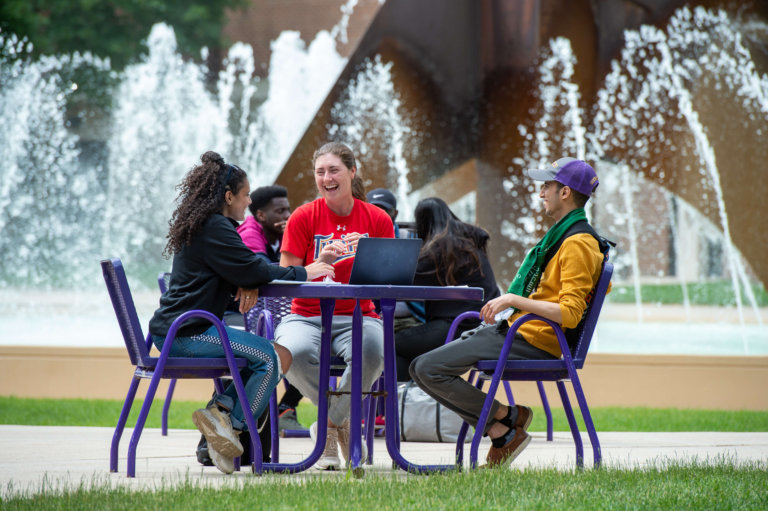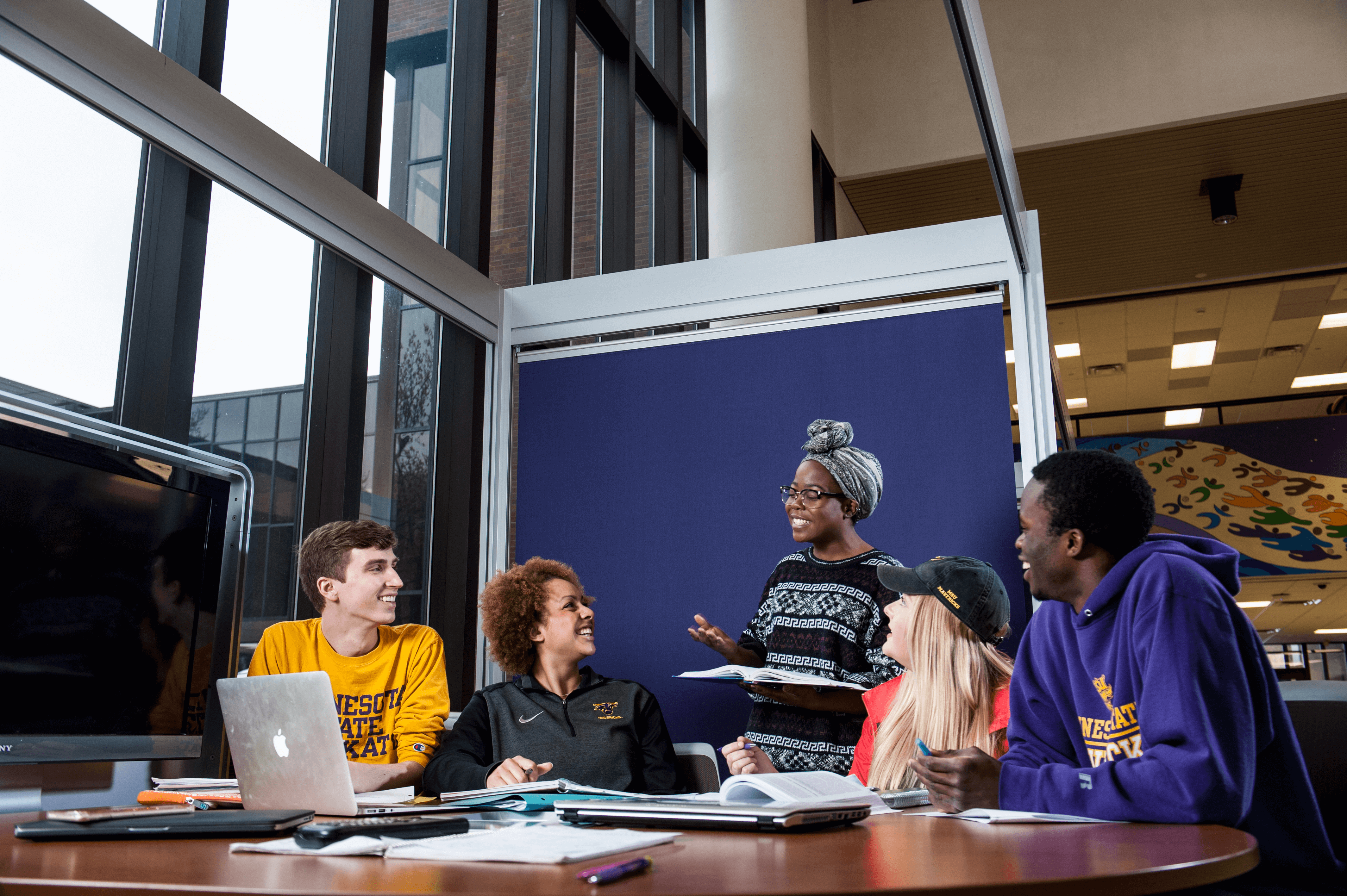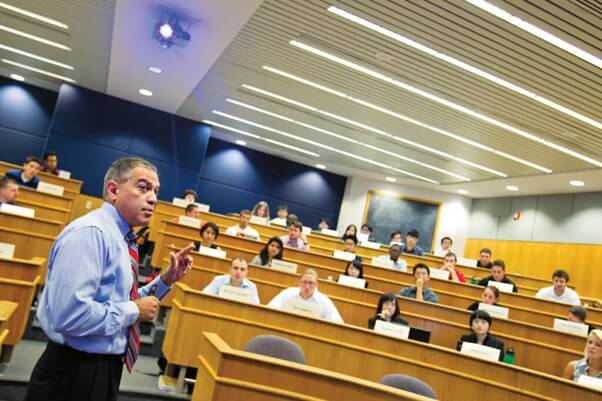
Having a successful career is no small feat but having an impactful one is even more remarkable. More than spearheading technological changes, engineers make positive and long-lasting impacts to their communities. If this life changing vocation calls to you, there is no better place that can help you to become the changemaker that you’re meant to be than in US universities.
It’s no secret that American engineering schools are known for their prestige and recognition worldwide. A degree from the US will open doors for you to work anywhere and to develop ingenious solutions to pressing challenges affecting the lives of many. Here are three universities to consider if you’re set on answering the engineering call.
Minnesota State University, Mankato: College of Science, Engineering, and Technology

Source: Minnesota State University, Mankato: College of Science, Engineering, and Technology
Impactful. Meaningful. Purpose-driven. These are three key traits that engineering students and faculty members live by at Minnesota State University, Mankato. The College of Science, Engineering, and Technology exemplifies the spirit of community that impactful engineering is all about. Here, you have the opportunity to grow with mentorships and real-world experiences to give you the tools you need to spark change.
At the college, you’ll encounter faculty members committed to nurturing conscientious minds adept in sustainable engineering for valuable solutions that improve lives. The Bachelor of Science in Civil Engineering (BSCE) programme, for instance, places community well-being at the forefront of its learning objectives so graduates can apply their knowledge of physical sciences for the greater good.
The senior capstone project in BSCE will give you a comprehensive, hands-on study of the five primary disciplines in civil engineering design, including structural, geotechnical, water resources, transportation, and environmental engineering. You’ll learn the value of teamwork, and connect with communities in the region to perform a feasibility study for an actual future project, giving you a glimpse into responsible project management that thoroughly prepares you for the workforce.
BSCE’s global outlook is reflected in its students – 25% of them come from outside the US, who go on to apply their knowledge back home or pursue further studies and obtain licensure in the US. Whichever route you take after graduation, the experience of engaging with peers from all over the world will give you greater awareness of current challenges in public infrastructure affecting different populations internationally.
The college also offers degrees in other engineering fields, such as Automotive Engineering Technology, Computer Engineering, Electrical Engineering, Manufacturing Engineering Technology, Mechanical Engineering and the Integrated Engineering Programme, a novel engineering education unique to the university that can be applied in wide-ranging industries. To know more about applying to the university, click here, and follow Minnesota State University, Mankato on Facebook, Twitter, Instagram, YouTube and LinkedIn.
University of Texas at Arlington

The University of Texas at Arlington offers many industrial placements for engineering students. Source: The University of Texas at Arlington
50 of the Fortune 500 companies are headquartered in Texas, so it’s no surprise that the second-largest state in the US is a popular choice for aspiring engineers. Promising progression into industries is key when choosing a university, and the University of Texas at Arlington (UTA) delivers industrial placements in spades for its engineering students.
UTA’s College of Engineering is a place of passion meeting precision, where students from all over the world converge in an award-winning faculty. The most comprehensive engineering program in North Texas provides 11 bachelor’s, 13 master’s and nine doctoral degrees for prospects to choose from in a university that’s been ranked as the fifth most-diverse in the US.
For women, the Society of Women Engineers has been a driver in foregrounding the full potential and achievements of its members. Under the Department of Civil Engineering, students can take on granular niche concentrations in areas such as Structural Engineering and Mechanics, Water Resource Engineering and Geotechnical Engineering to devise artful improvements on infrastructure planning.
Women in the faculty are making headlines for their work. Assistant professor Warda Ashraf, who received the Defense Advanced Research Projects Agency (DARPA) Young Faculty Award (YFA), is embarking on a project to study ancient Classical structures for possible synthetic replication, while Melanie L. Sattler is one of UTA’s acclaimed civil engineering professors with a long history of research and teaching excellence. These faculty strengths definitely foster a supportive environment for women to pursue impactful careers that shape our built environment.
Clarkson University

The Coulter School of Engineering prioritises teamwork and building relationships. Source: Clarkson University
Where there’s a gap in knowledge application, Clarkson University students strive to find inventive answers. This private, national research university in Potsdam, New York works at the intersection of science, technology and business to change the way industries operate. The university’s unflagging commitment to advancement is underscored by the Institute for STEM Education, which seeks to connect students, faculty and professionals for birthing next-generation leaders in innovation through sophisticated pedagogy.
For women engineers, the Coulter School of Engineering prioritises teamwork and building relationships, as ideas can only flourish in collaboration with others. Women in engineering thrive under strong peer support, and Clarkson University has its fair share of civil engineers who break the mould.
Michelle Crimi, Dean of the Graduate School, has been noted for her work in water treatment that could save up to 40% in annual operating costs. Students like Autumn Rose Lennon choose to focus on Construction and Engineering Management from her interest in architecture, citing Clarkson’s high placement rate and connections with businesses as an incentive to enhance her knowledge at the New York-based campus.
The Civil Engineering programme offers several minors and concentrations for students, including affiliated courses such as Architectural and Facilities Engineering and Project Management Minor to complement their learning. This flexibility allows for knowledge-expansion that results in well-rounded women graduates who can secure competitive co-ops and internships to occupy their rightful place in the field.
*Some of the institutions featured in this article are commercial partners of Study









